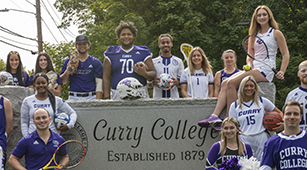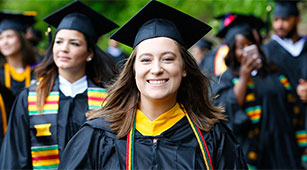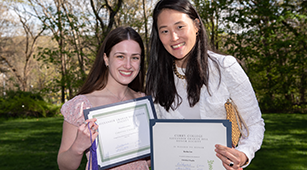Schedule an appointment to meet with Career & Experiential Learning about your area of interest.
Make an Appointment

Schedule an appointment to meet with Career & Experiential Learning about your area of interest.
Make an Appointment
Student-run clubs, organizations, and events are a key part of succeeding at Curry.

A Division III experience unlike any other. See what it means to be a Curry Colonel.

Empower our students to achieve their ambitions. Consider a gift to Curry College today.

Our rich liberal arts tradition, sound career focus, and empowering and supportive environment prepare our students for success.

The First-Year Studies program facilitates a successful transition to College by:
The first semester of college is an exciting time for you. With that excitement may also come uncertainty, new choices and decisions, and anxiety about new people, classes and environment. As you make the transition to Curry College, the Curry Launch course is a great way to help you learn about yourself and develop strategies that will ensure success throughout your college career.
Curry Launch is a 1-credit course required of all new students designed to assist you with your transition to the college experience. Throughout the course, you are introduced to methods and resources to promote success in college, and opportunities to discover how you learn, relate, and make choices. Topics in the course focus on the value and purpose of higher education, academic development, organizational skills, Curry’s course learning management system and e-portfolio systems, and wellness topics such as stress management, drug abuse, sexual assault, relationships, and personal well-being. Campus life and support systems for academics and wellness will be introduced.
The First Year Inquiry Seminar is the cornerstone course of Curry's General Education program. The FYI introduces students to thinking in the liberal arts through examination of topical, relevant, real-world issues. Students will have to opportunity to select seminar topics of interest through the new student advising survey. The seminars have no more than 17 students and are taught by experienced faculty who have a passion for teaching first year students.
(3 Credits) Guides students through the process of academic writing, including focusing their ideas, constructing effective essays, and finding their voices. Emphasizes the importance of purpose, audience, and tone in all writing. Teaches students to revise in order to develop further complexity and depth in their written work. Enhances students' ability to detect and correct errors in grammar and mechanics. Provides opportunities for students to write personal narratives and reflections, responses to readings, argument/persuasive essays, and essays that introduce research and citation. Helps students gain confidence in reading, writing, and discussion skills. (Prerequisite: Completion of Writing Assessment. Note you must pass WRIT 1060 with a C- or above to register for WRIT 1280.)
Learning Outcomes:
Each student in The Academic Writing Process will have the opportunity to:
(3 credits) This course introduces students to reading and writing at the college level. Emphasis on the process of composing source-based essays to a specific audience and purpose. This course will present strategies for critical reading, purposeful revision, and reflection within a clear writing process. Time will be spent working on presenting ideas with clarity and correctness.
Learning Outcomes:
Upon successful completion of the course, students will be able to:
(3 credits) Advancing concepts introduced in WRIT I, this course focuses on research writing at the college level. Emphasis will be on developing a sound research process from inquiry to final product using strategies for applying research methods in order locate, critically read, and evaluate diverse texts (scholarly, popular, print, media). Focus will be on presenting research in a comprehensive research writing project using appropriate rhetorical conventions.
Learning Outcomes:
Upon successful completion of the course, students will be able to:
Student instructors are upper-class students who partner with a faculty member to lead a section of a First-Year course. Student instructors offer students in the class their perspective on issues that first year students face and offer advice and identify resources that may be of help to students in the class. Become a student instructor and impact the lives of first year students.
In order to be considered for a position as a student instructor, students must:
Getting your college career off to a good start is a terrific way of setting yourself up for a good finish. Learn more how Curry’s First-Year Experience sets you up for success.
We use cookies to make interactions with our websites and services easy and meaningful. By continuing to use this website, you consent to Curry College’s usage of cookies and similar technologies in accordance with the college’s Cookie Notice.